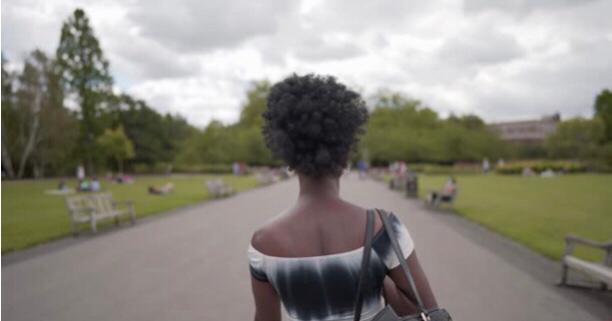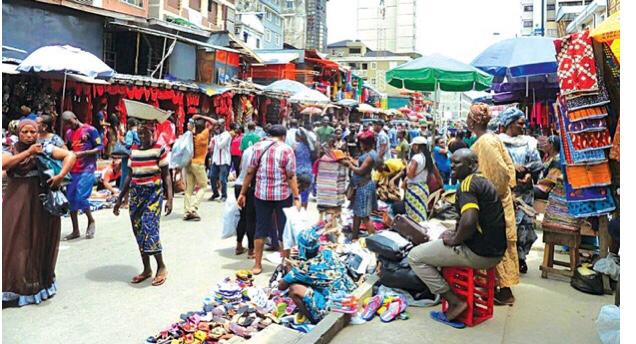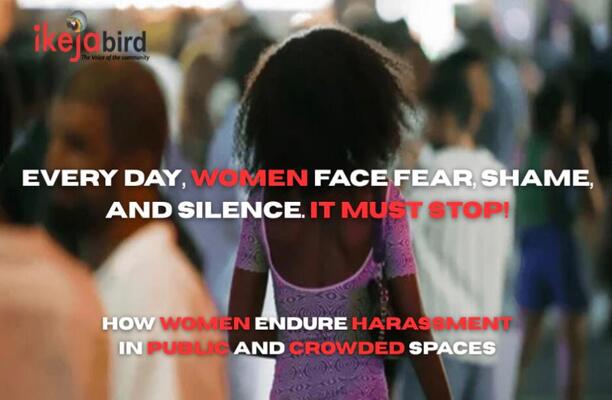By Sunkanmi Adewunmi
For many Nigerian women, a trip to the market, a stroll between lecture halls or even a simple walk to the car park becomes a gauntlet of unwanted advances and abuses. Such incidents are so routine they’re often shrugged off as “just part of life”. Yet beneath the numb acceptance lies deep trauma, silenced by shame and institutional indifference. In their own words, two women—we’ll refer to them as Respondent 1 and Respondent 2—lift the veil on everyday harassment, demanding we listen and act. These first-hand accounts reveal the unseen scars and the urgent need for change.
“I was stunned… I told my friends after.”
Respondent 1, 22, Undergraduate
Travel to campus is meant to be uneventful. Instead, on an ordinary day “on the road”, Respondent 1 felt a stranger’s hand roam over her chest. “A guy touched my boobs one day on the road, uncalled for. And he said ‘oh sorry’. I’ll never forget.”
Frozen in shock, she admits:
“I’m not a violent person so I didn’t hit him or anything. I told my friends after.”
From that moment on, she altered how she presented herself.
“Yes, I cover up more to avoid harassment.”
And yet the insecurity remains. When asked what she would change, her voice hardens:
“To change it, I’d want to be violent so these men stop playing with me.”
Despite the hope that authorities might help, her trust is shattered:
“No, police won’t help… They’ll blame you.”
She sighs, imagining a hopeless cycle: “They should sha not legalise guns because d**d bodies go surplus.”

“He bolted the door… I was genuinely scared.”
Respondent 2, Age range 20–25, Undergraduate
Respondent 2’s ordeal began with what seemed like an innocent search for a friend, during which she was intercepted near a classroom by a man she presumed to be a member of the teaching staff—though she remains unsure. Their exchange was cordial at first:
“I even thought maybe he was saying something sensible… asking me questions about a scholarship.”
The man then invited her to his office and once she entered his office, everything changed:
“He bolted the door… and then he was holding my hand. He dragged me… like he wanted me on his lap.”
A torrent of fear washed over her:
“I was scared… a thousand and one emotions were just going through me at the same time.”
She pleaded internally for rescue, praying her friends would barge in:
“I was just hoping… someone would knock at the door.”
Only a fortuitous phone call from the friend she had initially been searching for offered an escape:
“I pretended it was an emergency and quickly ran away.”
But this wasn’t her first encounter. In her first year of university, a lecturer had locked her in his office and subjected her to “all sorts of perverted words”. On this occasion she was saved by her friends who barged into the office with a false emergency.

Markets, classrooms and fear
While Respondent 2’s story unfolded behind closed doors, harassment in public markets is equally pervasive. She recounts the chaos of Yaba Market:
“They touch you without consent and when you talk back, they hurl cuss words: ‘Get out, you wey be ol*sho.’”
Even dressing modestly provides no guarantee:
“I wore a gown… looked like a nun. But he still said, ‘You are tempting me.’”
Such experiences force women to adapt their lives:
“I’ve changed how I dress, where I look… because no one is coming to defend you.”
Why women stay silent
Both respondents highlight victim-blaming as a cruel deterrent to reporting:
“When you complain about things like this, they say ‘It’s because of what you wore.’”
Institutional apathy compounds the trauma:
“I won’t ever want to report to police… they are very st*pid and very silly, and they don’t give a sh*t.”
This silent suffering perpetuates the cycle. Perpetrators go unpunished, and women adapt their behaviour instead of seeking justice.

Charting a safer future
- Zero-tolerance policies: Schools, markets and transport hubs must adopt clear rules against harassment, with well-publicised reporting channels.
- Gender-sensitive training: Police and security personnel need mandatory training to handle complaints with empathy and urgency.
- Environmental design: Isolated offices near classrooms should be relocated to busy administrative blocks, and emergency call-points installed across campuses and markets.
- Bystander mobilisation: Campaigns should encourage witnesses to intervene or call for help, transforming passive onlookers into allies.
- Community dialogue: Open forums where women share experiences—and men learn the impact of their actions—can shift cultural norms from victim-blaming to accountability.
These stories aren’t rare—they echo through markets, corridors, and streets across Nigeria. Respondent 1 says, “they should be punished severely.” Respondent 2 recalls, “I was scared. Genuinely scared.”
By amplifying these voices, we honour their courage and confront our collective silence. It’s time to turn fear into action—so no woman has to live in fear just to exist.









I hope this particular article reaches the necessary eyes because enough is enough abeg. the fact that this harassment issue has become a norm is so crazy. Godforbid sha!